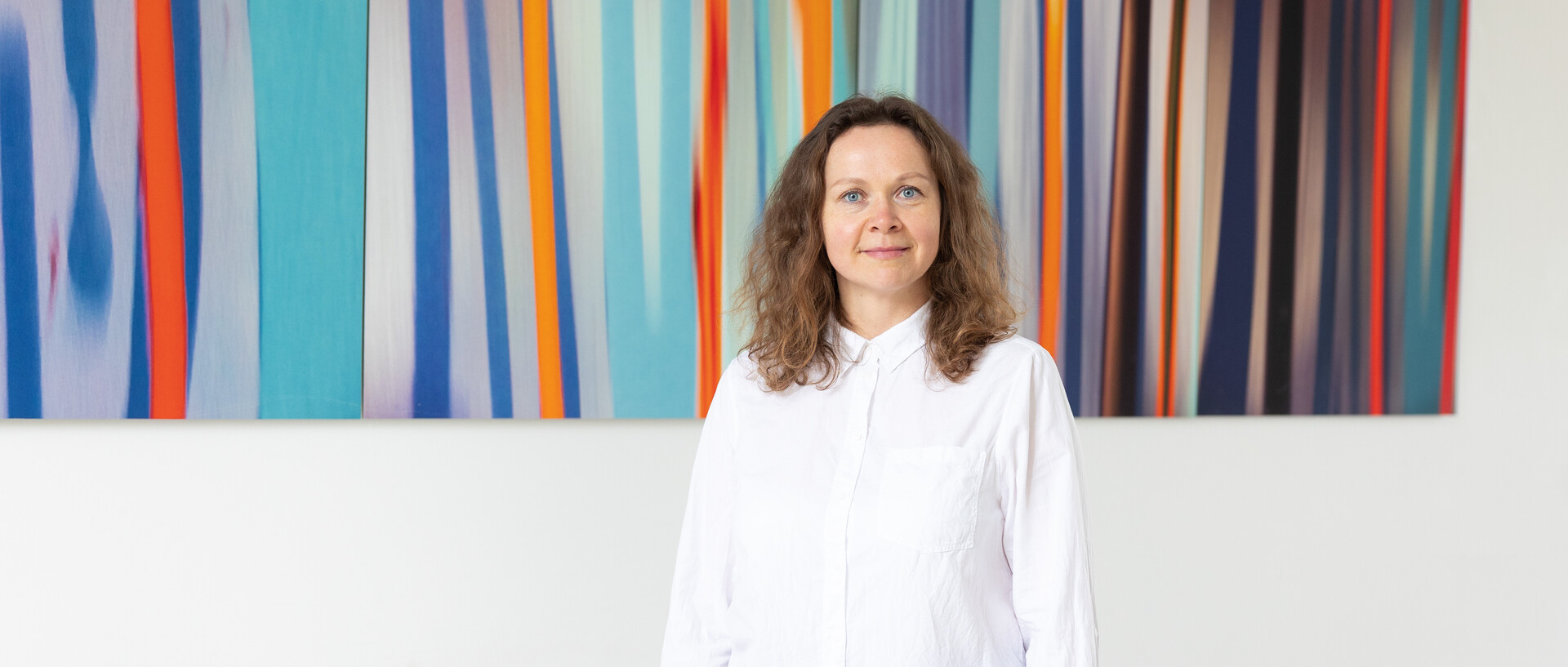Ganna
Ganna was an associate professor with a doctoral degree at Charkiw University, a city in the north of Ukraine. She prefers to stay anonymous and not publish her last name.
When did you decide to leave Ukraine and why did you come to Mannheim?
In April 2022, I decided to leave Charkiw. First, I moved to Israel and stayed there until October, before I moved on to Germany. I knew about fellowships that were offered in Germany and that many European universities supported Ukrainian scholars. So, I decided to send my research project to the University of Mannheim. I was very happy when I received a response, and the Department of German Linguistics invited me. I'm very thankful to the head of the Department of German Linguistics, Professor Angelika Storrer. She kindly agreed to invite me, and now I have a contract for one year until October.
How was your start in Germany?
I travelled a lot and visited Bremen and Frankfurt am Main. I wish I could say that my start here was easy, but it wasn't. I had to deal with a lot of emotional distress and psychological difficulties. My life, like the lives of many other people, has changed a lot. And now my task is to get used to those changes and adapt. But I am very thankful to my colleagues from the Department of German Linguistics, especially Dr. Maya Linthe, and also Katharina Bolle from the Research Support team. They help me all the time with all matters. There are a lot of differences compared to Ukraine. The funny thing is, many of the German stereotypes like punctuality and being well-organized are true, at least in my own experience. But that's not all, of course, Germany is also very diverse and very different from what I imagined when I came here. There are so many people here from different nationalities. This has a great impact on the country and the culture. And now you have a new wave of immigrants that will have another impact. It is a very interesting development.
In your research, you analyze political discourses from a linguistic perspective. Can you tell me more about that?
My research focuses on political slogans, specifically protest slogans used during oppositional movements and political upheavals in Ukraine, Belarus, and Russia. I know that many scholars are also interested in these subjects, but I aim to study how national identities are expressed through speech. During oppositional movements, people try to emphasize their belonging to a particular nation.
Can you give an example?
I will try to explain, as many examples may be difficult to understand for those who do not speak Russian or Ukrainian. There is one slogan that says, “Please say 'Palyanytsya'". Palyanytsya is a type of Ukrainian bread that only Ukrainian-speaking people can pronounce correctly. In Russian, the sound “ts” is often hard, but in Ukrainian, it's soft.
So there is identification based on pronunciation?
Exactly. This is very interesting because many people in Ukraine can speak Russian, but most Russians can't speak Ukrainian. The slogan was created after the invasion as an identification for Ukrainians. Another more illustrative example would be: “Ukraine is not a little Russia.” This slogan means that Ukraine is not a part of Russia, because historically the Soviet Union included different countries, different republics. Now these countries are independent, but many people believe that Ukraine and Belarus are part of Russia and dependent on Russia in economics and politics. Slogans like these demonstrate that people in Ukraine really want to be independent. They have their own culture, their own language, and they can exist as independent countries.
How did you proceed methodically?
As part of my research, I conducted a questionnaire to understand the opinions of people from different countries. One of the questions was whether they consider Ukrainians as Russians. I received many affirmative responses to this question. I asked people in Israel, Germany, and other European countries, and a significant number of them answered that they would consider Belarusians and Ukrainians as Russians in general.
Do you think this perception still stems from the Soviet Union?
Absolutely. In the minds of many people, we are all the same because we are Slavic people. And it's true, it's really difficult to distinguish between Ukrainians, Russians, and Belarusians in terms of appearance, even for Ukrainians themselves. That's why they use the slogan “Say 'Palyanytsya'.”
Is this perception going to change, in your opinion?
I hope so. But more importantly, considering the experiences of current events, we need this war to stop as soon as possible. Everyone wants this conflict to be resolved. This war has cost many lives. So many people died. It's horrible. It’s unbelievable that it’s 2023 and we are still facing the same problems. Our experiences and our previous history have not taught us much. We keep making the same mistakes over and over again.
Do you think that will change one day?
I hope so. But considering the experience of current events it's hard to believe. But nevertheless, I only wish for peace. I have started to learn German , as a sign of respect to the country that hosts me. This is what makes me happy right now and distracts me from all of this.
Text: Moritz Klenk
